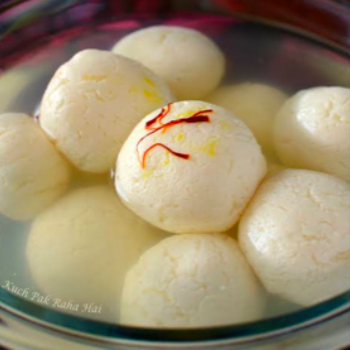In the bustling city of Mumbai, where life races through the veins of its streets like an unstoppable tide, Priya Sharma finds herself in a common quandary. As a dedicated mother and a passionate homemaker, she strives to balance the demands of her job with her family's needs. The festive season is approaching, and with it, the age-old tradition of delighting loved ones with homemade sweets. But like many urban families, the Sharmas face a modern dilemma time. Herein lies the heart of the problem that Rasgulla, a beloved Indian sweet, so elegantly solves.
Priya's story mirrors that of countless Indian families who cherish the nostalgia and joy that traditional sweets bring. For generations, sweets have been the centerpiece of celebrations, binding families with their sugary threads. However, as urban life grows more hectic, finding the time to prepare these delicacies has become increasingly challenging. Priya remembers her grandmother, Meena, effortlessly whipping up batches of Rasgulla in her humble kitchen in Kolkata. The soft, spongy spheres drenched in sugar syrup were more than just sweets; they were an expression of love, a symbol of family unity.
The Rasgulla, with its rich history and cultural significance, offers a practical solution for Priya and many like her. By providing an authentic taste of tradition without the labor-intensive process, Rasgulla becomes the hero of modern-day dessert dilemmas. Imagine Priya’s relief as she uncovers a box of Arora Hotel's Rasgulla from her refrigerator. The aroma of cardamom and the sight of those perfectly round delights bring a smile to her face. In mere moments, she transforms a regular family dinner into a festive occasion, preserving the essence of her grandmother's kitchen in her own home.
The art of storytelling is deeply ingrained in Indian culture, and food is often the protagonist. The Rasgulla story is no different; it is a tale of cultural preservation, convenience, and emotional fulfillment. As Priya serves the Rasgulla to her family, her children, Aarav and Ananya, devour them with delight. Her husband, Raj, reminisces about his childhood summers spent in Bengal, where Rasgulla was a staple at every celebration. This shared experience bridges generational gaps, creating new memories while honoring old ones.
The emotional problem faced by Priya — the need to connect with her cultural heritage and pass it down to her children — finds its solution in a simple box of Rasgulla. This is not just a sweet; it is a vessel of tradition, a reminder that amidst the chaos of modern life, the essence of family and culture remains intact.
To understand the impact of such a solution, consider the case of the Joshi family in Delhi. Rohan Joshi, a software engineer, and his wife, Kavita, a school teacher, face a similar predicament during Diwali. With both partners juggling demanding careers, the preparation of traditional sweets becomes a daunting task. Yet, a single purchase of high-quality Rasgulla alleviates their stress, allowing them to focus on the celebration rather than the kitchen. The Rasgulla becomes a bridge, connecting their fast-paced lives with the cherished traditions of their childhood.
In conclusion, the Rasgulla is more than just a confectionery delight; it is a solution to a distinctly modern problem faced by Indian families. It offers a taste of authenticity, a slice of tradition, and a moment of togetherness in a world that often feels fragmented. For Priya, Rohan, and countless others, the Rasgulla is a sweet reminder that no matter how fast-paced life becomes, the bonds of tradition and family remain unbreakable. As we savor each bite, we are reminded that every day can be a celebration, and every meal an opportunity to reconnect with our roots.
So, this festive season, let the Rasgulla be your sweet solution — a delightful way to honor the past while savoring the present.
Visit Vyaparify Site:
https://id.vyaparify.com/arora-hotelLocation:
https://maps.app.goo.gl/thKCCkAtnrDcQBZJ6?g_st=com.google.maps.preview.copy 
